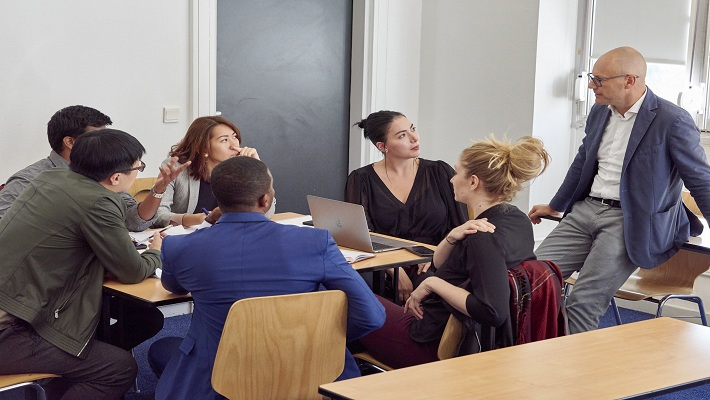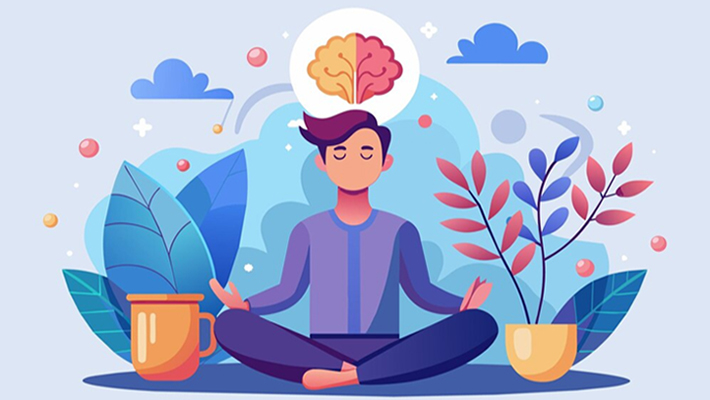
Experiential learning has emerged as a powerful pedagogical approach in higher education, offering students a transformative educational experience. Unlike traditional lecture-based teaching methods, experiential learning encourages students to actively engage with the subject matter through hands-on experiences, real-world applications, and reflective practise.It allows students to apply theoretical knowledge to practical situations, fostering critical thinking, problem-solving skills, and creativity. It also promotes a deeper understanding of the subject matter and enhances students' ability to transfer their learning to new contexts. This pedagogical approach is particularly effective in preparing students for the real world, as it equips them with the skills and competencies needed to succeed in their future careers. By engaging in experiential learning, students develop important skills such as communication.
This article explores the profound impact of experiential learning in higher education, delving into its benefits, challenges, and the key role it plays in preparing students for successful careers and personal growth.
Fostering Deeper Learning and Skill Development
One of the primary benefits of experiential learning in higher education is its ability to foster deeper learning and skill development among students. By providing opportunities to engage in real-world projects, internships, simulations, and problem-solving exercises, experiential learning encourages critical thinking and problem-solving skills. In traditional classroom settings, students may memorize information for exams without fully understanding its practical applications. Experiential learning bridges this gap by allowing students to apply theoretical knowledge to real-life situations, leading to a deeper understanding of the subject matter. for instance, in a biology class, students might have the opportunity to participate in a field study where they collect and analyze water samples from a nearby river. This hands-on experience not only reinforces their understanding of ecological concepts but also allows them to develop critical thinking skills as they identify potential sources of pollution and propose solutions. Through this experiential learning activity, students gain a practical understanding of how their classroom knowledge can be applied to solve real-world environmental challenges. This hands-on approach not only improves knowledge retention but also encourages students to explore concepts from different angles, leading to a more holistic understanding. Moreover, experiential learning nurtures essential soft skills, such as communication, teamwork, adaptability, and leadership. Collaborating on real projects with peers or professionals from industry helps students develop effective communication and collaboration skills, which are highly valued in the workplace. The experience of working in diverse teams also prepares students to adapt to different work environments and contribute effectively in their future careers.
Enhancing Career Readiness and Employability
Experiential learning plays a crucial role in enhancing students' career readiness and employability. In today's competitive job market, employers seek graduates who not only possess academic knowledge but also have practical skills and real-world experience. Participating in internships, co-op programmes, and industry partnerships allows students to gain hands-on work experience in their chosen fields. This exposure helps students build industry-specific skills and develop a strong professional network. It also provides students with a chance to demonstrate their abilities to potential employers, increasing their chances of securing job offers upon graduation. Experiential learning also enables students to explore different career paths and industries, helping them make informed decisions about their future careers. For students unsure about their post-graduation plans, experiential learning provides a safe environment to test various roles and gain insight into different industries. This exploration can be instrumental in helping students find their passion and align their academic choices with their career goals.
Nurturing Personal Growth and Empowering Students
Beyond academic and professional development, experiential learning fosters personal growth and empowerment among students. Engaging in hands-on experiences and facing real challenges encourages students to step out of their comfort zones and take on leadership roles. As students navigate through these experiences, they develop resilience, self-confidence, and a sense of empowerment. Experiential learning enables students to recognize their strengths, develop a growth mindset, and embrace continuous learning and improvement. Reflective practice is an integral part of experiential learning, encouraging students to evaluate their experiences and identify areas for growth and improvement. Regular self-assessment and goal-setting foster self-awareness, helping students become more proactive in their personal and professional lives. For example, in a business internship program, students are given the opportunity to work on real-life projects and tasks. Through experiential learning, they can recognize their strengths in areas such as problem-solving or teamwork, develop a growth mindset by learning from failures and seeking continuous improvement, and feel empowered to take ownership of their learning journey. Reflective practice allows them to evaluate their performance, identify areas for growth, and set goals for future development, enhancing their self-awareness and proactive approach towards personal and professional growth.
Experiential learning has a profound impact on higher education, transforming the way students learn, grow, and prepare for their future careers. By fostering deeper learning, enhancing career readiness, and empowering students to explore their potential, experiential learning enriches students' academic journeys and equips them with the skills and mindset needed for success in an ever-evolving world. As higher education institutions continue to embrace experiential learning, they empower students to become lifelong learners and contribute meaningfully to their chosen fields and communities. The undeniable impact of experiential learning paves the way for a more dynamic and engaging higher education experience that nurtures both academic excellence and personal growth.







